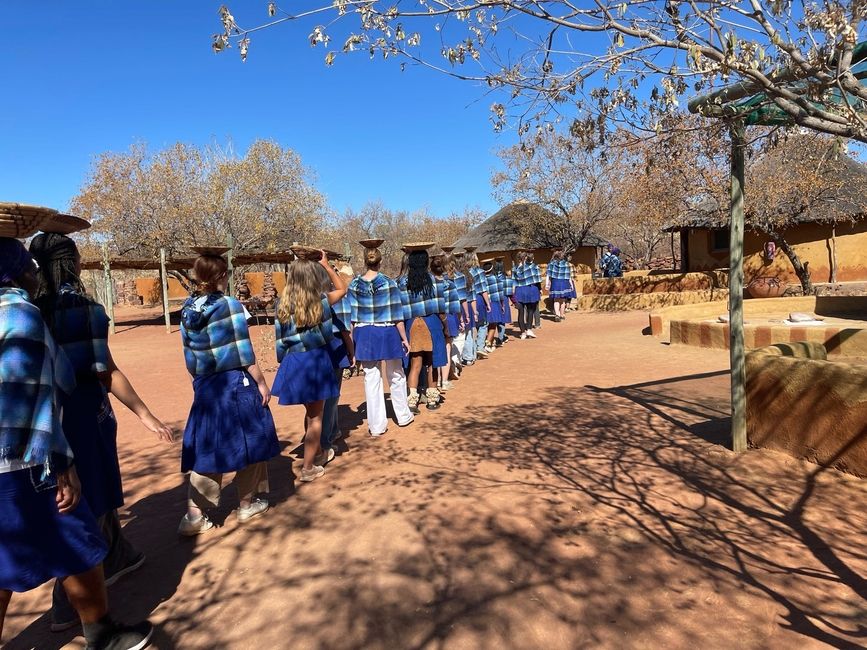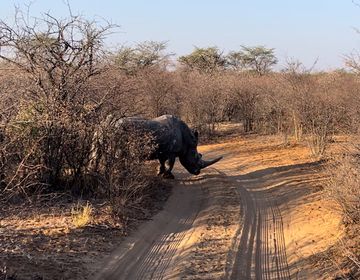Botho "people are people because of people"

Botswana culture is built on collaboration, community and consultations. Botswana prides itself for being a peaceful country and many say it's because of the spirit of Botho. Botho means people. It means you earn and give respect. It means you consult others before making a decision. It means being considerate of others and how your decisions can affect them. We learned this during our very 1st class and we have seen this playout throughout the trip. We learned the phrase “ Motho ke motho ka botho” which means a person is a person because of other people. In addition to the spirit of Botho, the people of Botswana are very proud of their culture. You can see this through dance, music, traditional foods and their reverence to the elders and ancestors.
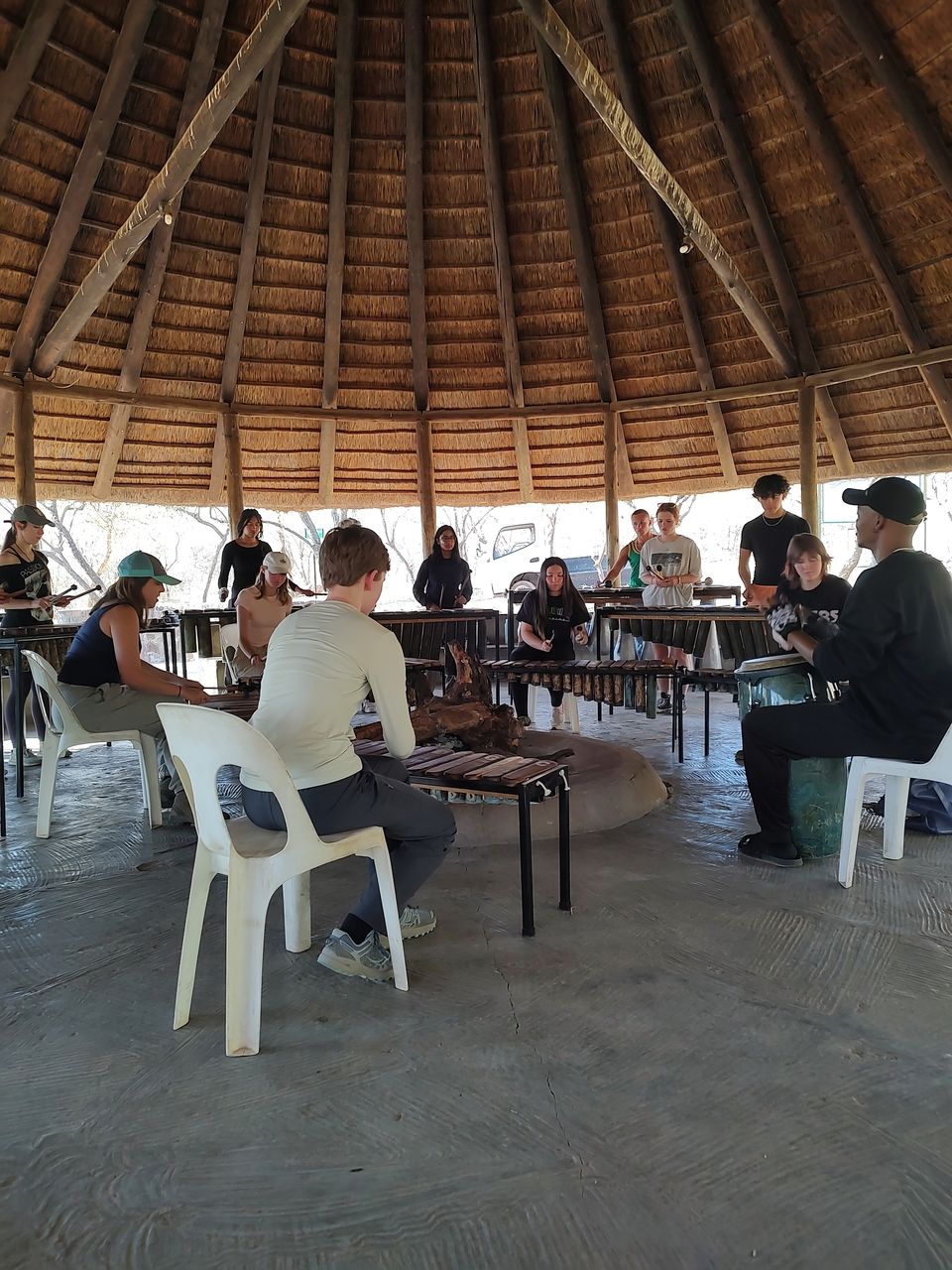
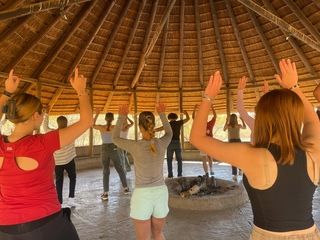
Our students were able to experience several moments of cultural exchange. Our students received a marimba lesson where they learned the importance of the instrument to Botswana culture. They participated in a dance class where they learned a dance routine to Amapiano music. We also visited Bahurutshe Cultural Village in Mmankgodi, which teaches the old ways of Botswana culture. The village was created in 2004 by Chief Mmankudu when she realized that the culture was fading away. She wanted to create a place to share the rich culture the country and people possess. When we entered the village, the chief gave an offering to the ancestors to make sure we were welcomed. Luckily, the ancestors accepted us and we were welcomed by traditional dancers, and the women of the village. The chief informed us that we were in a village where the Baboon was the totem. The students have been discussing totems in their class lessons and how the people of Botswana use this concept to influence conservation as well.
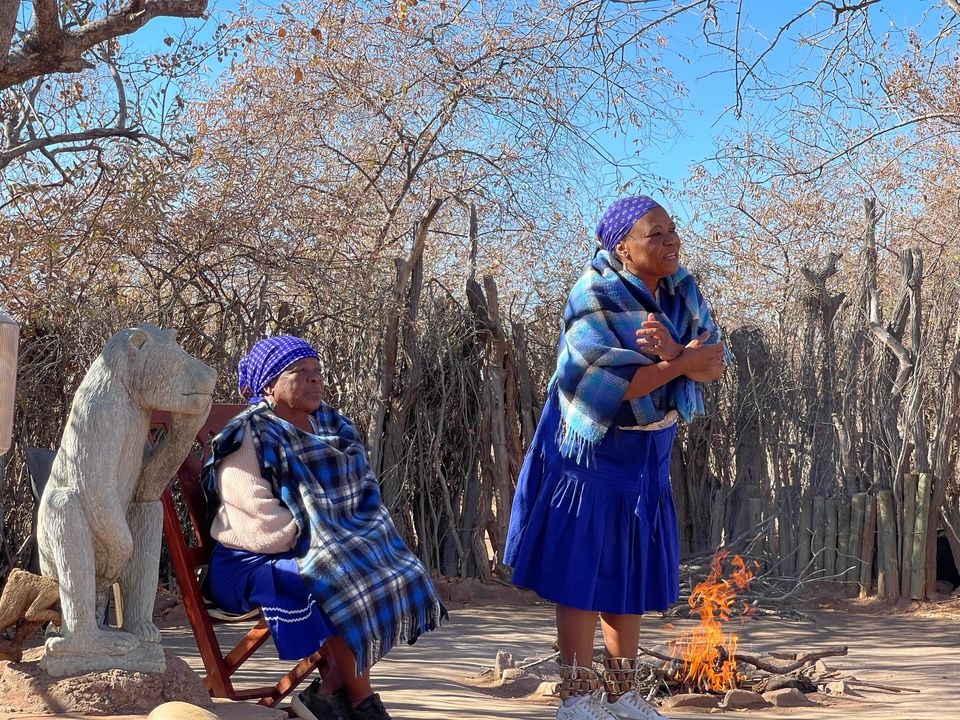
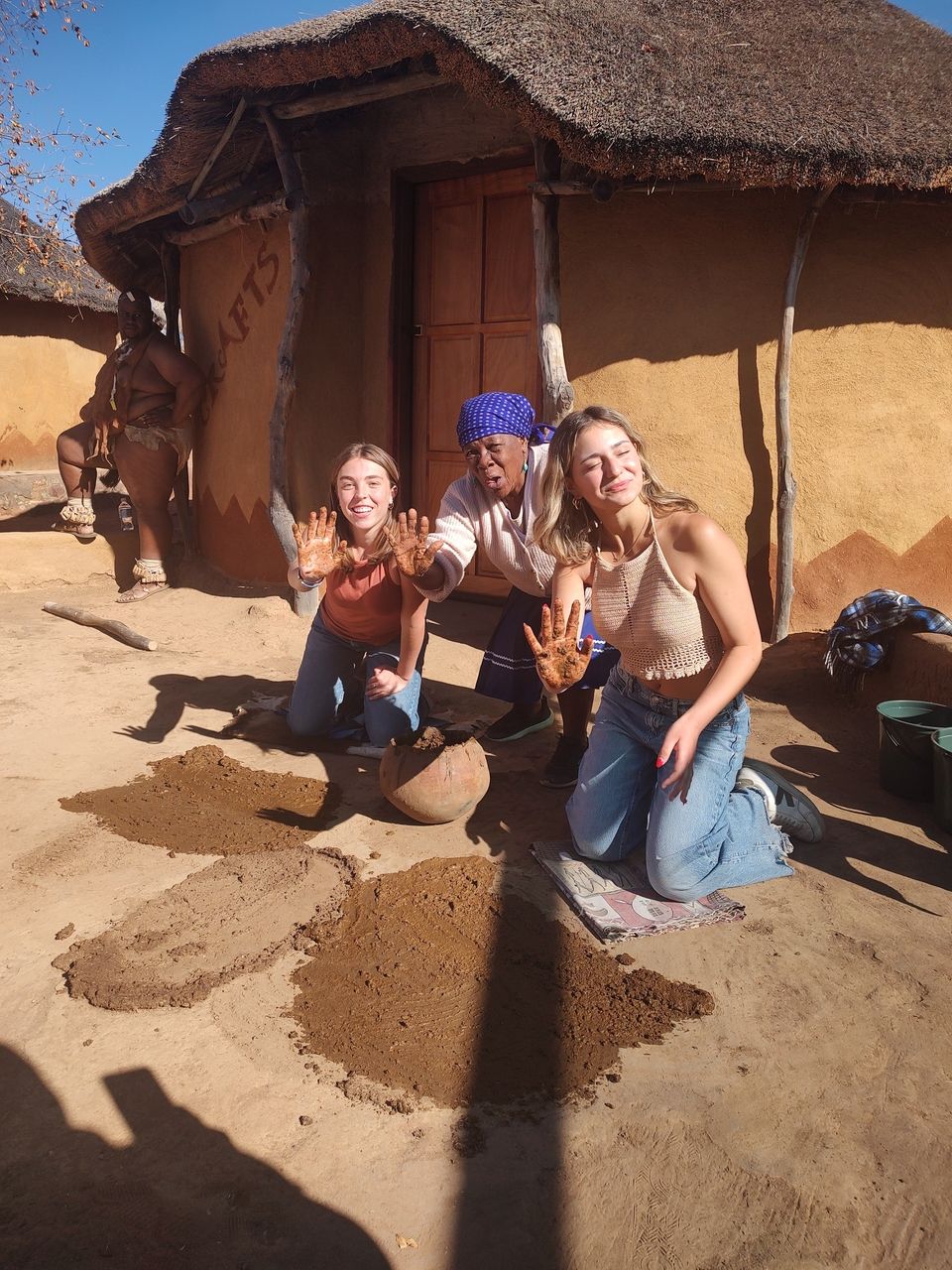
During our time at the village, we were dressed in traditional clothes, were taught a dance asking for Pula, and saw the village cattle posts. Pula is the local currency but it also means rain. We've been learning in class about the current lack of rain and how that has affected wildlife. The members of the village emphasized that water and fire equal life in the village. We were able to see donkeys and goats at the cattle posts. We also learned about traditional remedies for keeping snakes away, for starting fires and for keeping peace in the village. We were able to sit down with the chief and learn how tradition and modernization can co exist together. The chief explained how her generation kept certain social concerns quiet and how certain topics of discussion were seen as taboo. She was very open to how the younger generations are speaking up about mental health, sexual abuse and making sure the rights of children are being upheld.
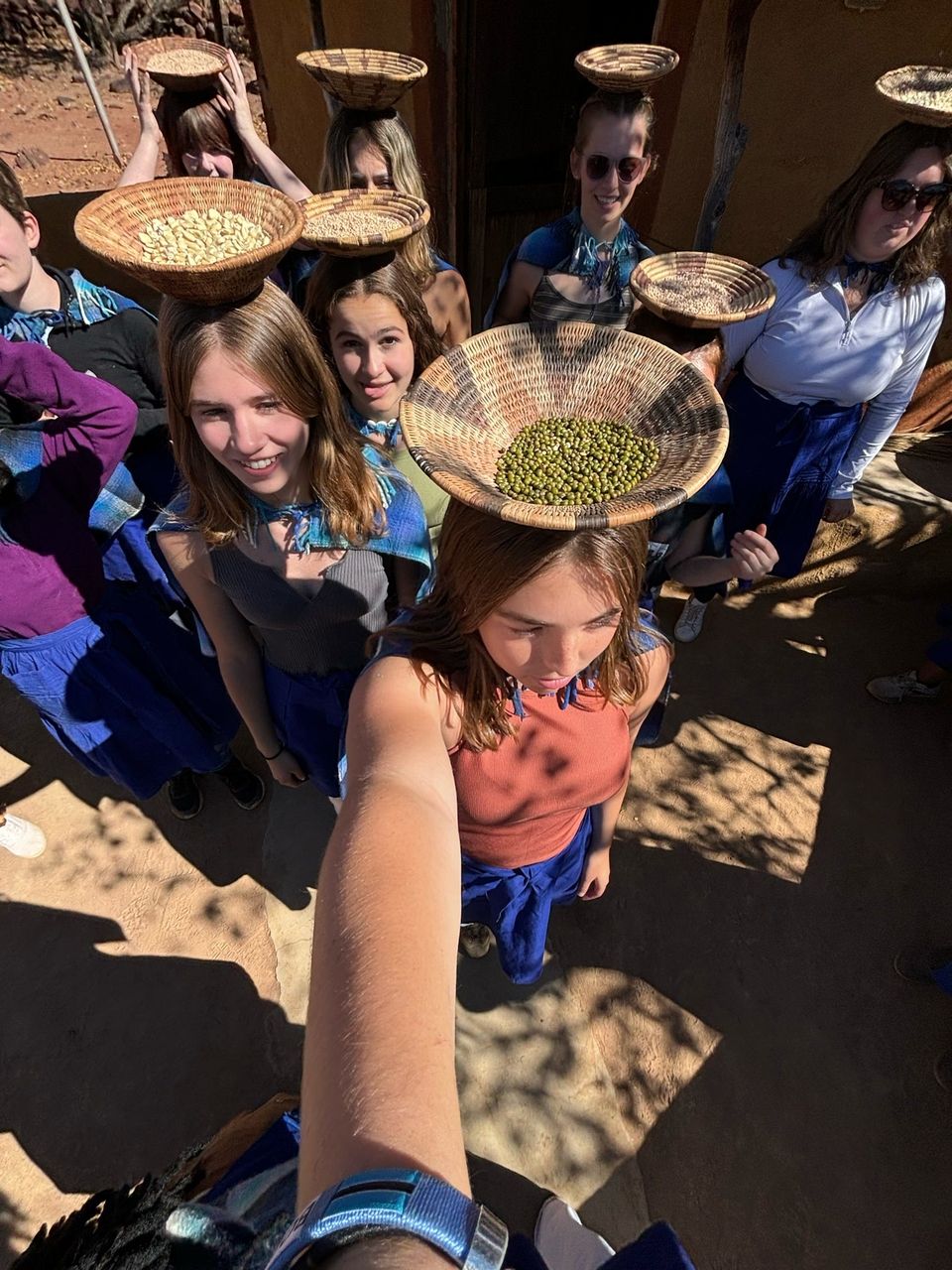
Before leaving the village, we had the best meal we have had so far on this trip. We had a meal full of traditional foods like Seswa, cabbage, Pap and Sorghum. Even when preparing to have our lunch, one of the members helped us all wash our hands. From beginning to end you can see how the spirit of Botho is the foundation of Botswana culture.
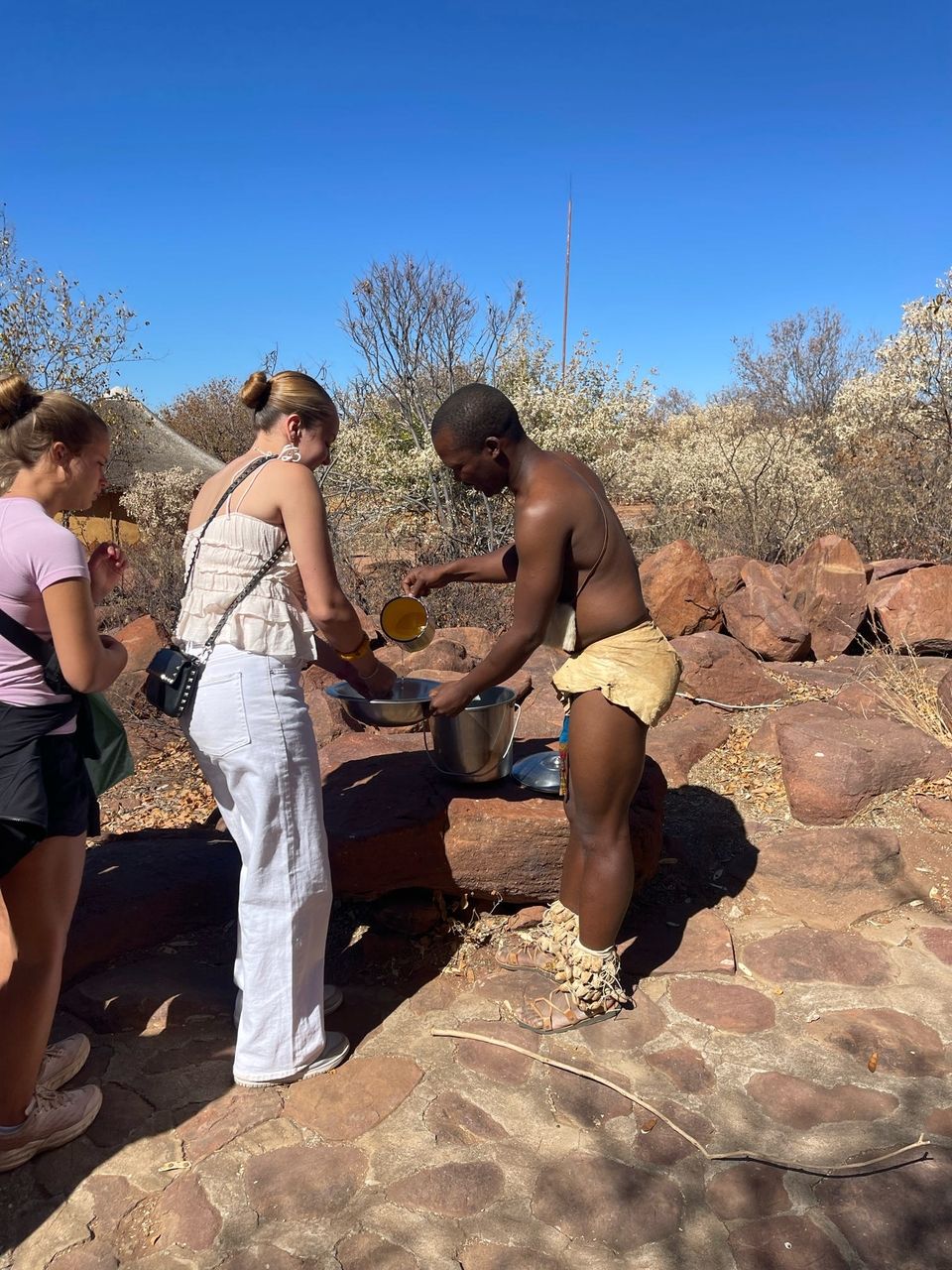
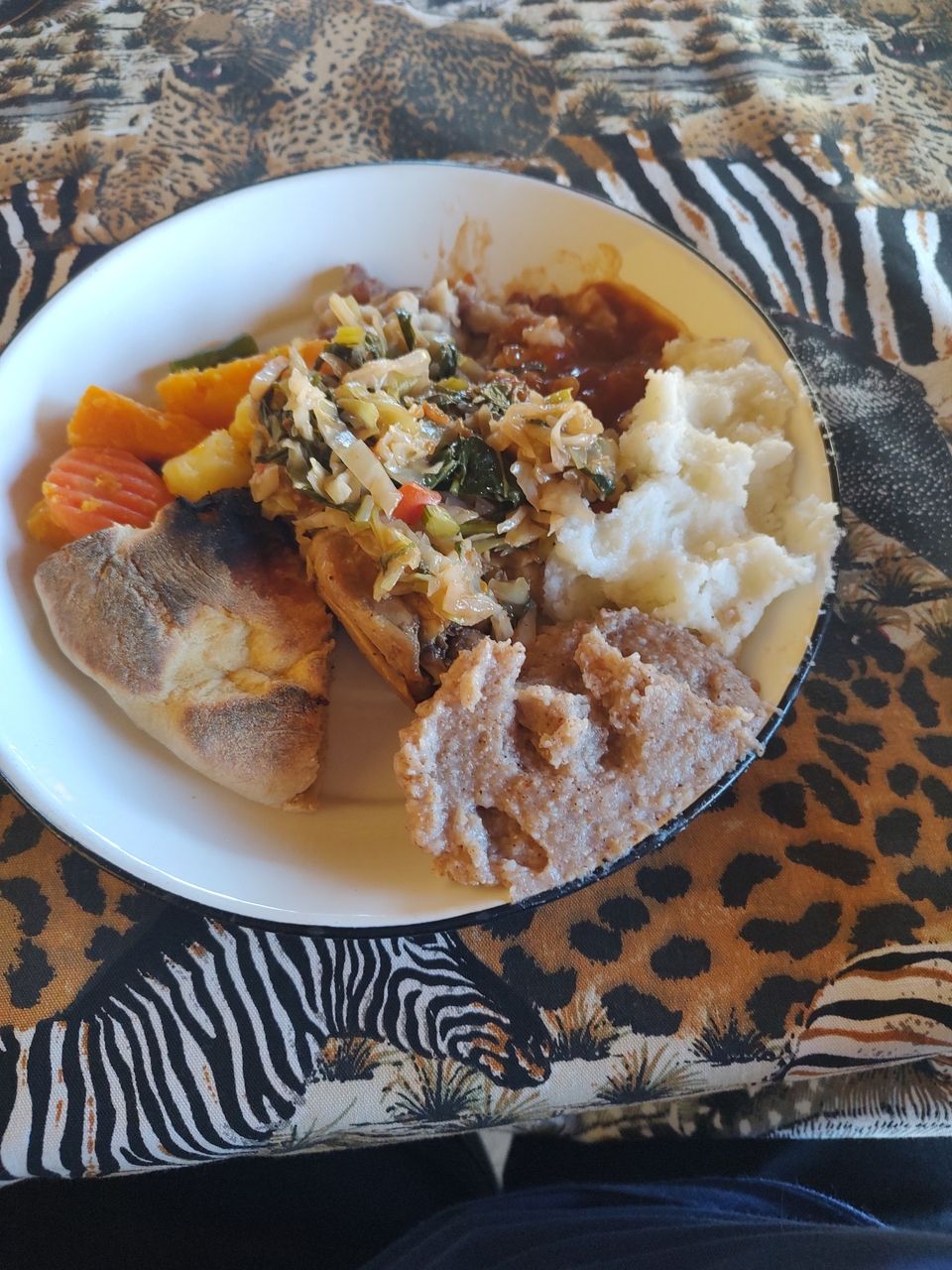
Related Posts
Final Reflections and Advice for Future Students
It is our last day here in Botswana and before all the tears began, we asked students to share some of their final reflections and thoughts. Over the past three... keep reading
A Baobab that rose from the Okavango Delta
There are some things that are iconic to the continent of Africa- the big five, delicious food and the majestic Baobab tree. The Baobab is known as the tree of... keep reading
Khama Rhino Sanctuary
The first stop on our journey to the northern part of Botswana was the Khama Rhino Sanctuary; established in 1992, the sanctuary is a “community based wildlife project” aimed at... keep reading
